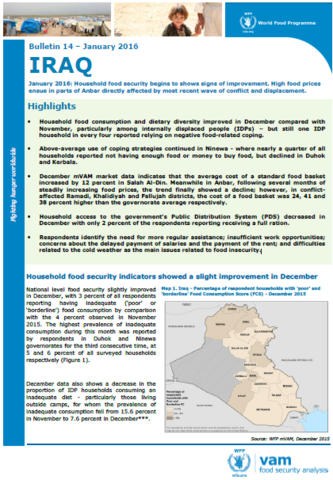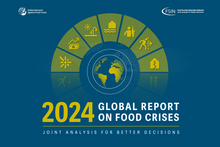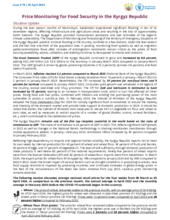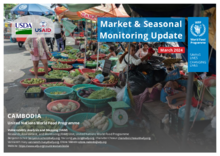
- Household food consumption and dietary diversity improved in December compared with November, particularly among internally displaced people (IDPs) – but still one IDP household in every four reported relying on negative food-related coping.
- Above-average use of coping strategies continued in Ninewa - where nearly a quarter of all households reported not having enough food or money to buy food, but declined in Duhok and Kerbala.
- December mVAM market data indicates that the average cost of a standard food basket increased by 12 percent in Salah Al-Din. Meanwhile in Anbar, following several months of steadily increasing food prices, the trend finally showed a decline; however, in conflict-affected Ramadi, Khalidiyah and Fallujah districts, the cost of a food basket was 24, 41 and 38 percent higher than the governorate average respectively.
- Household access to the government’s Public Distribution System (PDS) decreased in December with only 2 percent of the respondents reporting receiving a full ration.
- Respondents identify the need for more regular assistance; insufficient work opportunities; concerns about the delayed payment of salaries and the payment of the rent; and difficulties related to the cold weather as the main issues related to food insecurity.
| Document | File |
|---|---|
| Bulletin #14: Household food security begins to shows signs of improvement. High food prices ensue in parts of Anbar directly affected by most recent wave of conflict and displacement, January 2016 |
PDF | 1.45 MB
Download
|



